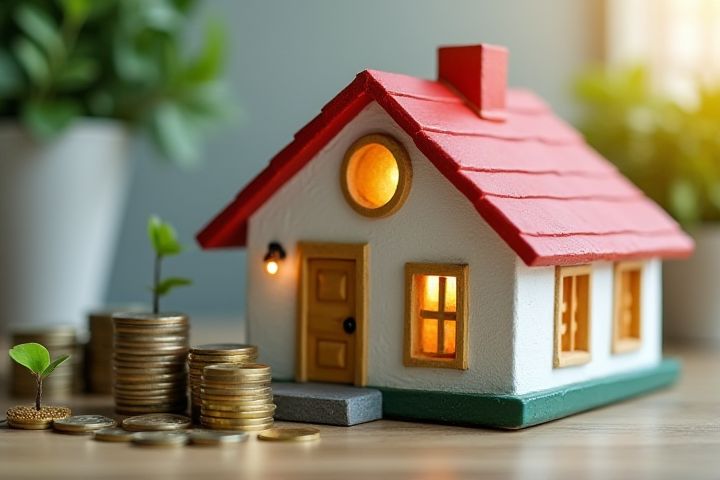
Financing a house flip typically involves a combination of personal funds, traditional mortgages, and specialized loans like hard money loans. Hard money loans, often provided by private lenders, allow for quick access to capital based on the property's value rather than your credit score. You might also consider using a home equity line of credit (HELOC) if you own property with significant equity, enabling you to borrow against that equity for your flip. Investor partnerships can serve as another route, wherein you pool resources and share profits with other real estate investors. Understanding the financing options available is crucial for maximizing profits while minimizing financial risk in your house-flipping venture.
Who Finances A House Flip
Hard money lenders
Hard money lenders primarily finance house flips through short-term loans secured by the property itself, typically ranging from 60% to 80% of the after-repair value (ARV). These lenders prioritize the property's value over the borrower's creditworthiness, allowing quicker access to funds within days rather than weeks. Interest rates for hard money loans can vary, averaging between 8% and 12%, but they often come with origination fees ranging from 1% to 3%. For your house flipping venture, understanding the terms and conditions from hard money lenders can significantly impact your profit margins.
Private investors
Private investors frequently finance house flips by providing capital in exchange for equity or interest on their investment. These individuals often seek opportunities in the real estate market, motivated by the potential for high returns, typically ranging from 10% to 20% of their investment. Unlike traditional lenders, private investors may offer more flexible terms and faster funding processes, enabling quicker renovations and sales. Engaging with private investors can enhance your flipping strategy, allowing you to leverage their financial resources to maximize property profitability.
Traditional banks
Traditional banks often finance house flips by providing short-term loans or renovation loans tailored for real estate investors. These loans typically require a comprehensive application process, including proof of income, creditworthiness, and detailed project plans. You may need to demonstrate adequate cash reserves and a well-thought-out strategy for purchasing and renovating the property. Bank financing usually comes with competitive interest rates, but adherence to strict terms and timelines is essential to secure funding and achieve successful project completion.
Personal savings
Personal savings often serve as a crucial source of financing for house flips, allowing investors to capitalize on immediate opportunities without incurring debt. Using personal funds enables you to maintain a higher profit margin by avoiding interest payments and closing costs associated with loans. According to industry experts, leveraging personal savings can lead to more flexible and quicker decision-making, which is vital in a competitive real estate market. In many cases, active investors allocate at least 20-30% of the total project costs from their savings, ensuring a substantial financial cushion throughout the flipping process.
Real estate partnerships
Real estate partnerships often provide essential financing for house flips, allowing investors to pool resources and share risk. Typically, one partner handles the operational aspects, such as renovations, while others contribute capital, potentially increasing profit margins by 20-30%. These partnerships can vary in structure, with some utilizing limited liability companies (LLCs) for liability protection. When considering a real estate partnership, it's crucial for you to establish clear terms regarding profit sharing and decision-making to ensure a successful project.
Home equity loans
Home equity loans are a popular financing option for house flippers, allowing them to leverage the existing equity in their primary residence. Typically, lenders will finance up to 80% of the home's appraised value, providing a substantial amount of capital for renovations and purchases. For instance, if your home is valued at $300,000, you could potentially access up to $240,000 through a home equity loan. This type of financing often features lower interest rates compared to personal loans, making it an attractive choice for those entering the house flipping market.
Credit lines
Financing a house flip often involves utilizing credit lines, which provide flexible and accessible funding options. Many investors turn to Home Equity Lines of Credit (HELOC), allowing you to borrow against your property's equity, typically at lower interest rates. Additionally, business lines of credit can be an excellent choice for those looking to finance multiple flips, offering a revolving credit option that can cover renovation costs swiftly. According to a recent survey, 60% of house flippers reported using lines of credit to fund their projects, highlighting their significance in real estate investments.
Crowdfunding platforms
Crowdfunding platforms have emerged as a viable financing option for house flips, attracting a diverse range of investors. These platforms typically allow individuals to pool resources, with minimum investments often starting at just $1,000. Through equity or debt offerings, you can secure the necessary capital, with potential returns averaging between 8% to 12% annually. Popular crowdfunding platforms such as Fundrise and RealtyMogul facilitate these transactions, connecting you directly with investors looking to capitalize on real estate opportunities.
Seller financing
Seller financing involves the property owner acting as the lender, allowing you to purchase a home without traditional bank financing. In this arrangement, the seller provides a loan for the purchase price, and you make monthly payments directly to them, often with interest. This option can be beneficial for buyers with less-than-perfect credit or those seeking quicker closings, as it bypasses the lengthy bank approval process. To ensure a successful house flip, negotiate favorable terms, such as a reasonable interest rate and a manageable repayment schedule with the seller.
Bridge loans
Bridge loans, short-term financing options, are commonly utilized by real estate investors like you for house flipping projects. These loans typically cover the gap between the purchase price and renovation costs, allowing for quick acquisition of distressed properties. With loan amounts ranging from $50,000 to several million, bridge loans usually feature higher interest rates, averaging around 8% to 12%, reflecting their expedited approval process. Most lenders require property equity and a clear exit strategy, often through a subsequent sale or permanent financing within 6 to 12 months.
